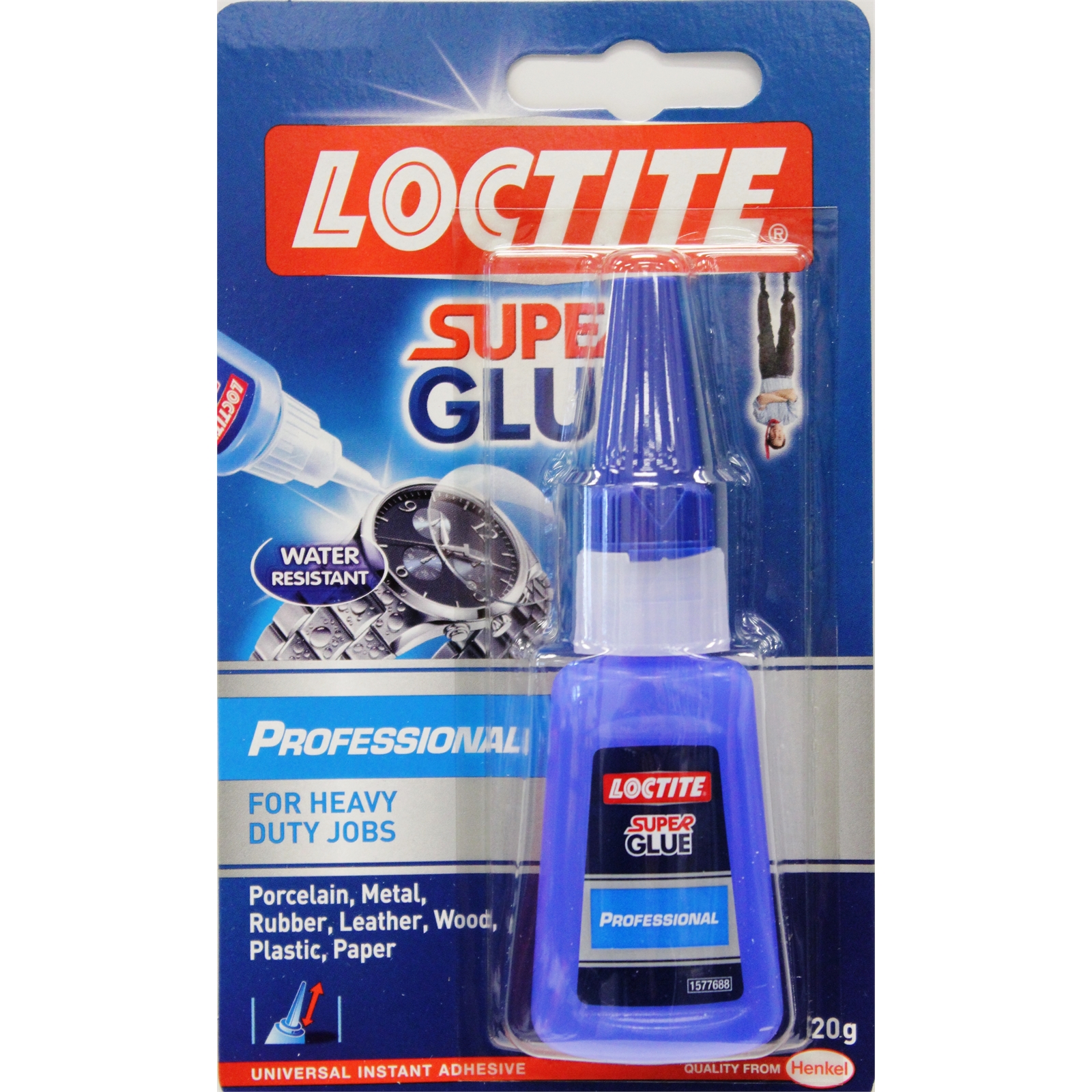what is Super Glue
Super Glue, also known as cyanoacrylate adhesive, is a fast-acting adhesive that is renowned for its strong bonding properties. It is commonly used for bonding various materials quickly and effectively. Here’s a closer look at its characteristics, uses, and advantages:


Key Characteristics
- Fast Drying Time: Super glue sets very quickly, usually within seconds to a few minutes, depending on the materials being bonded and environmental conditions.
- Strong Bonding: It creates a very strong bond that can hold materials together under stress. This makes it ideal for repairs and crafting.
- Versatile Application: Super glue can bond a wide range of materials, including plastic, metal, wood, glass, ceramic, and some fabrics.
- Clear Finish: Most super glues dry clear, making them suitable for applications where appearance matters, such as crafts and repairs.
- Water Resistance: While not entirely waterproof, many super glues are resistant to water and can withstand some moisture, making them useful for various applications.
Common Uses
- Household Repairs: Ideal for fixing broken items such as ceramics, toys, and furniture.
- Crafting: Widely used in arts and crafts for quick assembly of materials.
- Automotive Repairs: Useful for small fixes on various parts or components.
- Jewelry Making: Often used to bond small pieces in jewelry repair and creation.
- Model Building: Popular among hobbyists for assembling models due to its quick setting time and strong bonds.
Advantages
- Ease of Use: Super glue is easy to apply and does not require special tools or equipment.
- Quick Results: It provides immediate results, allowing for efficient repairs without long wait times.
- Compact Packaging: Available in small tubes or containers, making it easy to store and use.
Cautions and Limitations
- Skin Bonding: Super glue can bond skin instantly, so care must be taken during application. If skin bonds occur, acetone can be used to remove the adhesive.
- Limited Flexibility: Once set, the bond may be brittle and can break under excessive stress or if the bonded materials are flexed too much.
- Temperature Sensitivity: Some super glues may not perform well at extreme temperatures or in outdoor conditions.
- Surface Preparation: For the best results, surfaces should be clean and dry before applying the adhesive.
Summary
Super glue is a versatile and powerful adhesive that is valuable in various applications, from household repairs to crafting. Its fast-setting time and strong bonding capabilities make it a popular choice for quick fixes and creative projects, though users should be aware of its limitations and handle it carefully to avoid skin contact.
benefits of Super Glue
Super Glue (cyanoacrylate adhesive) offers several benefits that make it a popular choice for a variety of applications. Here are some of the key advantages:
1. Fast Setting Time
- Super glue bonds quickly, typically within seconds to a few minutes, allowing for immediate use of repaired items without long waiting periods.
2. Strong Bonding Capability
- It creates a very strong bond that can hold various materials together under stress, making it ideal for repairs and crafting. The bond strength is often greater than that of the materials being joined.
3. Versatility
- Super glue can bond a wide range of materials, including plastic, metal, wood, glass, ceramics, and some fabrics. This makes it suitable for numerous applications across different projects.
4. Clear Finish
- Most formulations of super glue dry clear, which helps maintain the appearance of the items being repaired or crafted. This is particularly important in arts and crafts where aesthetics matter.
5. Compact and Convenient Packaging
- Super glue is often available in small tubes or containers, making it easy to store and use. This compact size is perfect for home, office, or travel use.
6. Ease of Use
- No special tools or equipment are required to use super glue. It can be easily applied with precision using the applicator tip, making it user-friendly for people of all skill levels.
7. Durability
- Once cured, super glue is resistant to many environmental factors, such as moisture and some chemicals, which enhances the longevity of the bond.
8. Minimal Cleanup
- Super glue usually requires minimal cleanup compared to other adhesives, as it is easy to apply precisely and does not create messes when used correctly.
9. Ideal for Small Repairs
- Its strong bonding capabilities make it ideal for small repairs on items like toys, electronics, jewelry, and household items, saving costs on replacements.
10. Heat Resistance
- Many super glues can withstand moderate heat, which can be advantageous in various applications, though they may not be suitable for extremely high temperatures.
11. Compatible with Other Adhesives
- Super glue can often be used in conjunction with other adhesives, allowing for creative bonding solutions in complex projects.
Summary
Super glue is a versatile, fast-acting adhesive that provides strong, reliable bonds across a wide variety of materials. Its ease of use, quick setting time, and clear finish make it a go-to solution for both everyday repairs and creative projects, making it a valuable addition to any toolkit.
Demerits of Super Glue
While Super Glue (cyanoacrylate adhesive) has many advantages, it also has some drawbacks that users should be aware of. Here are the main demerits:
1. Instant Bonding
- The quick setting time can be a disadvantage if users accidentally bond their fingers or other surfaces together. Care must be taken during application to avoid unintentional contact.
2. Brittleness After Drying
- Once cured, super glue can become brittle, which means that the bond may break under stress, vibration, or impact, particularly if the materials being bonded are flexed or moved frequently.
3. Limited Flexibility
- Super glue does not maintain flexibility after drying, making it unsuitable for applications where some movement or flexibility is required, such as in rubber or flexible materials.
4. Temperature Sensitivity
- Super glue can weaken or lose adhesion in extreme temperatures, whether hot or cold. High heat can cause the bond to break down, while freezing temperatures can lead to reduced effectiveness.
5. Moisture Sensitivity
- Although some formulations are water-resistant, many super glues can be negatively affected by prolonged exposure to moisture or humidity, potentially weakening the bond over time.
6. Surface Preparation Required
- For optimal bonding, surfaces must be clean, dry, and free from oil or dust. If the surfaces are not properly prepared, the bond may not be as strong or effective.
7. Not Ideal for Large Areas
- Super glue is best suited for small repairs. Using it on large surfaces can lead to uneven bonding or insufficient adhesive coverage, making it less effective for big projects.
8. Chemical Sensitivity
- Cyanoacrylate can react negatively with certain chemicals, including some cleaning agents and solvents, which may damage the bond or the materials being glued.
9. Fumes and Skin Irritation
- The fumes from super glue can be irritating to the eyes and respiratory system, especially in poorly ventilated areas. Skin contact can also lead to irritation or allergic reactions in some individuals.
10. Shelf Life
- Super glue has a limited shelf life and can degrade over time, especially if not stored properly. If the container is left open or exposed to air, the adhesive may harden and become unusable.
Summary
While super glue is a powerful adhesive with many practical uses, its limitations regarding brittleness, moisture sensitivity, and handling safety should be considered. It may not be the best choice for every application, especially those requiring flexibility or exposure to harsh conditions. Proper usage and caution can mitigate many of these drawbacks, making it an effective tool when used appropriately.

